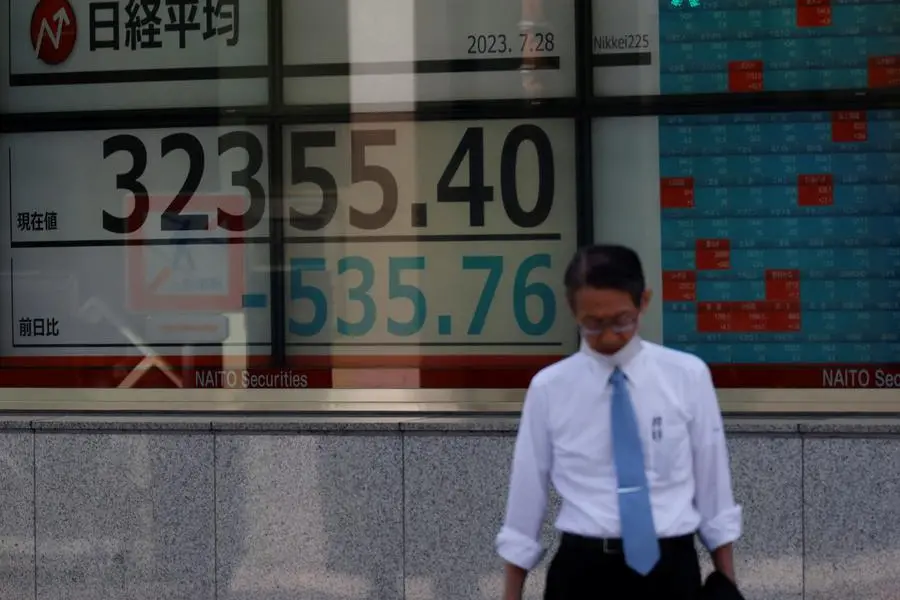PHOTO
Japan's benchmark stocks struggled for traction on Tuesday, remaining stuck this week some 1% shy of their all-time peak set over three decades ago, as traders were wary ahead of Nvidia earnings that could test the chip sector's euphoria over AI.
China's unexpectedly large rate cut gave Japanese stocks a boost, but it proved to be short-lived, and the Nikkei share average ended the morning session down 0.08% at 38,438.64.
The Nikkei is on the cusp of breaking its all-time high of 38,957.44 set on the final trading day of 1989, at the peak of Japan's bubble economy. On Friday, the benchmark index pushed as high as 38,865.06 before pulling back into the close.
Japan's chip-sector giants have been a driving force of the Nikkei's nearly 15% surge this year, handily outperforming major peers, including the U.S. S&P 500 and tech-focused Nasdaq Composite, which have gained about 5% each.
Chip-testing equipment maker Advantest, for example, which counts Nvidia among its customers, has soared 40% in 2024, despite sagging 1.2% on Tuesday.
Tech was a mixed bag overall, with AI-focused startup investor SoftBank Group gaining 0.4% and chip-making equipment giant Tokyo Electron adding 0.1%, while Advantest-peer Lasertec slid 1.5%.
Nvidia reports financial results on Wednesday.
"With Nvidia's earnings announcement looming, it's extremely difficult for investors to move," leading to "no sense of direction" in the market, said Kazuo Kamitani, an equities strategist at Nomura Securities.
"For Nvidia of course, and for Japanese stocks as well, there's some feeling of overheating, so a dip would be natural, but with expectations so extremely high, it's not going to decline so easily."
A measure of momentum called the relative strength index (RSI) sits at 75.8 for the Nikkei, and has been above the 70 line signaling overbought conditions for more than a week.
Among the Tokyo Stock Exchange's 33 industry groups, shippers led the session's gains with a 1.9% advance as shipping rates rise on continued Houthi militant attacks on cargo vessels in the Red Sea.
Pharmeutical companies rose 0.6%, buoyed by the U.S. Food and Drug Administration's (FDA) approval of AstraZeneca's lung cancer treatment.
Insurers led losses, sliding 2.1%. Tokio Marine Holdings was among the Nikkei's worst performers with a 2.9% slide, following its rally to a record high close in the previous session. (Reporting by Kevin Buckland Editing By Shri Navaratnam)





















